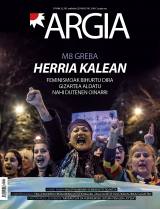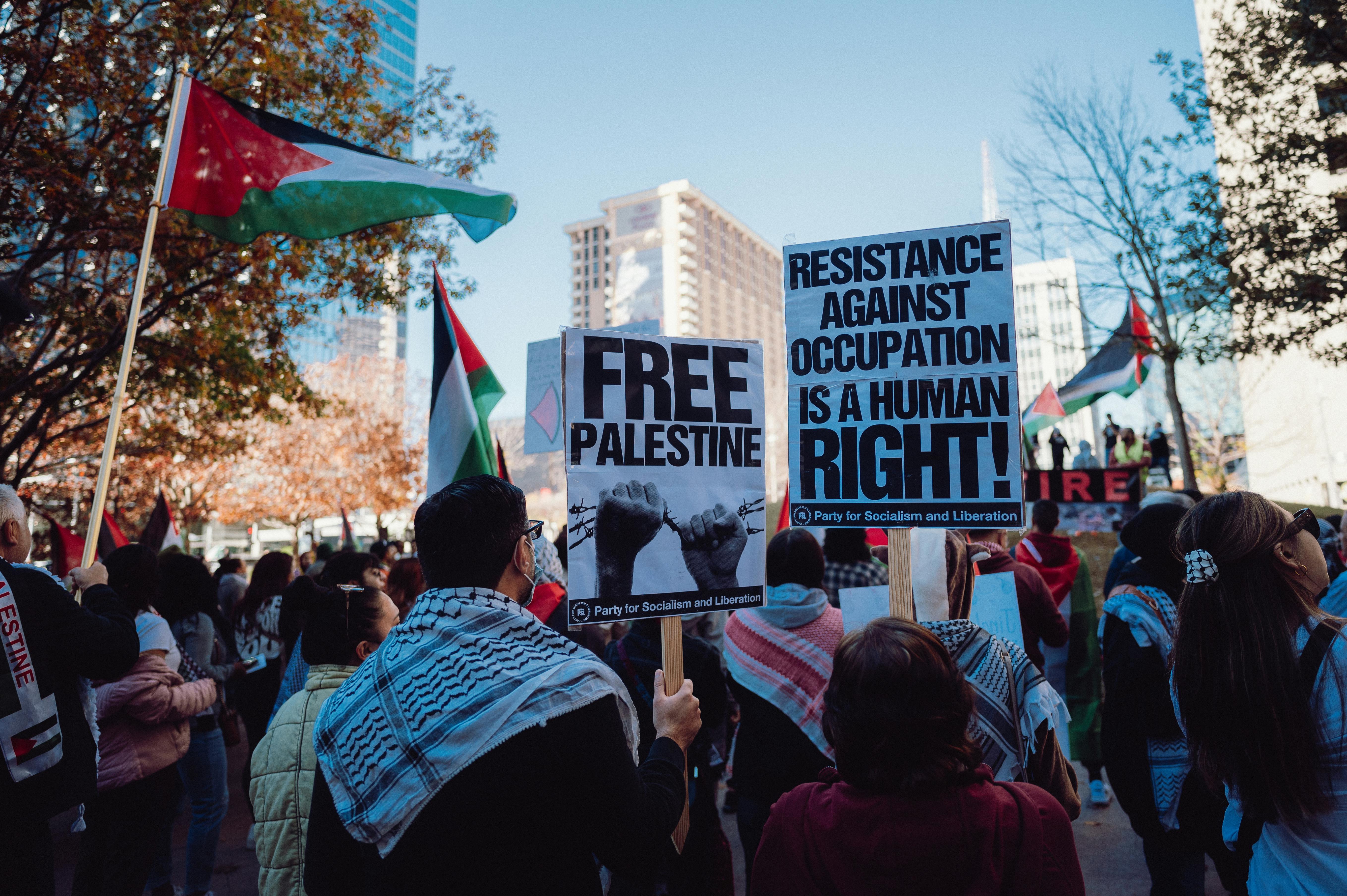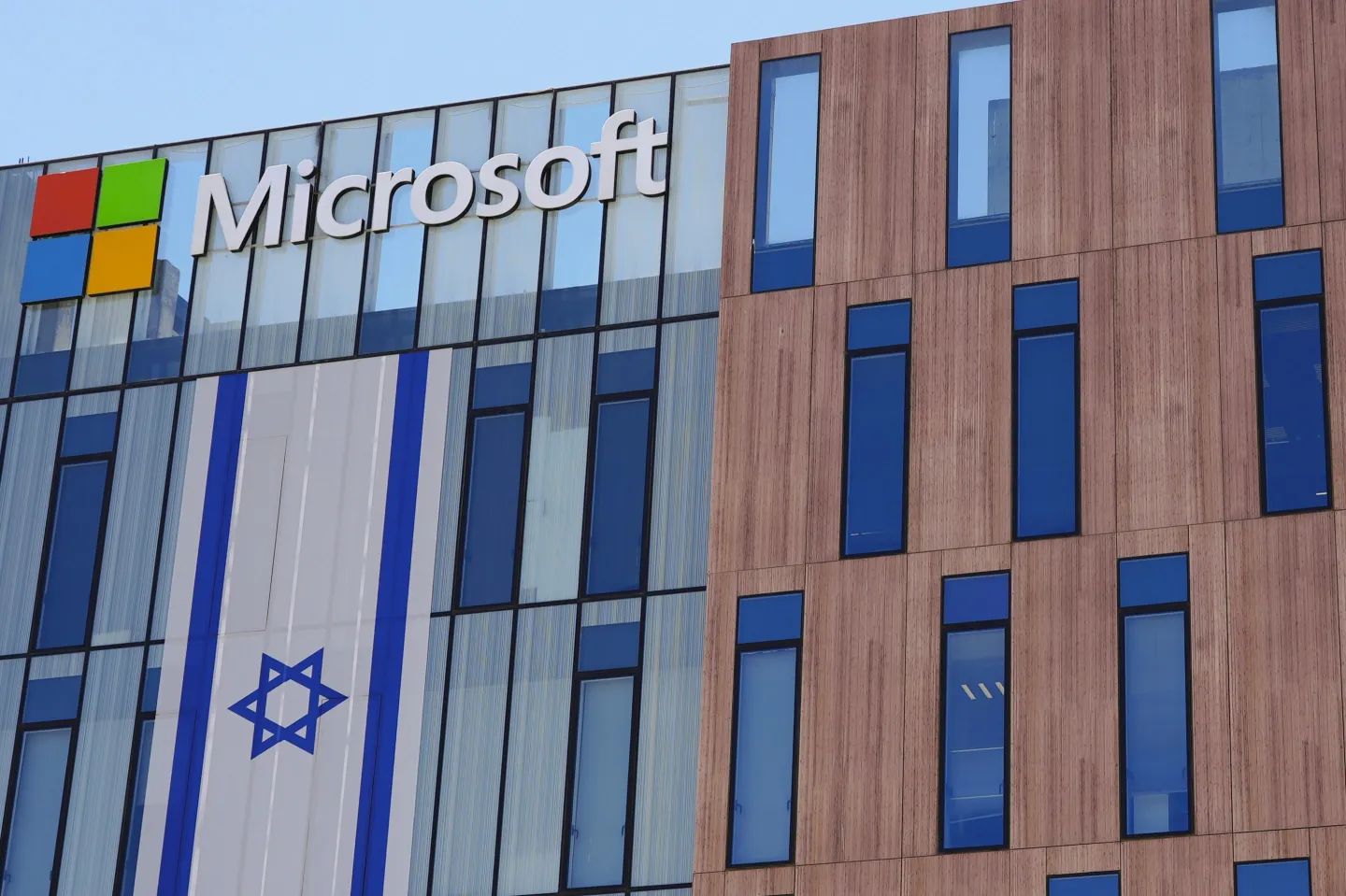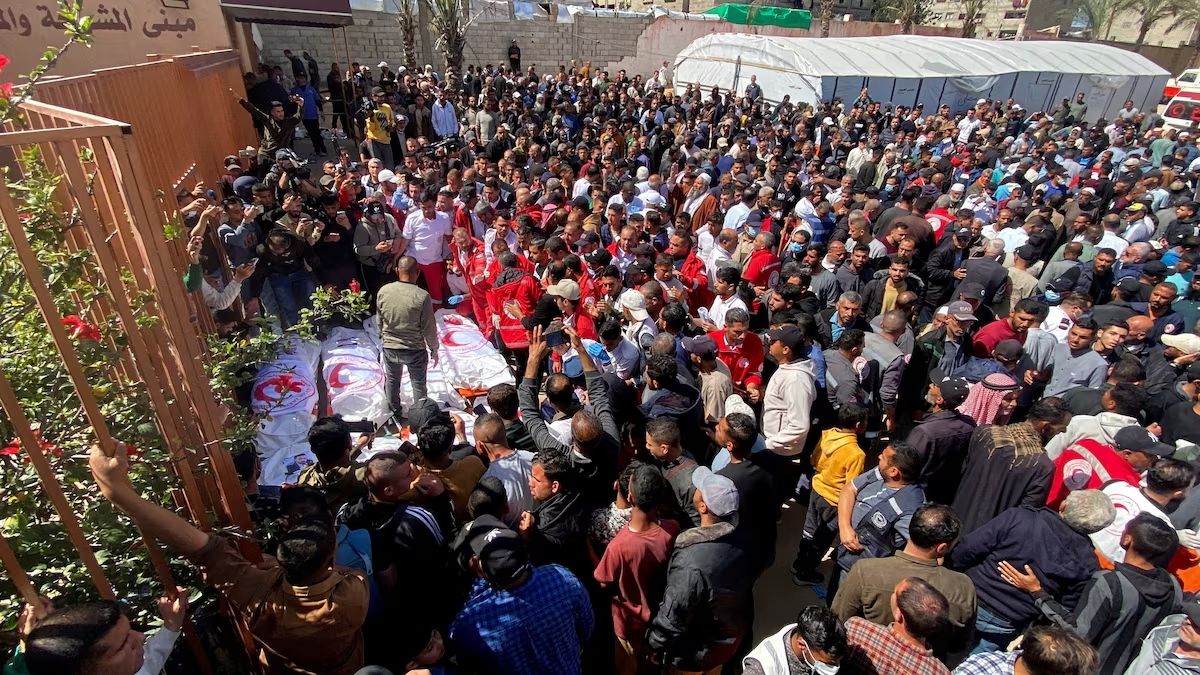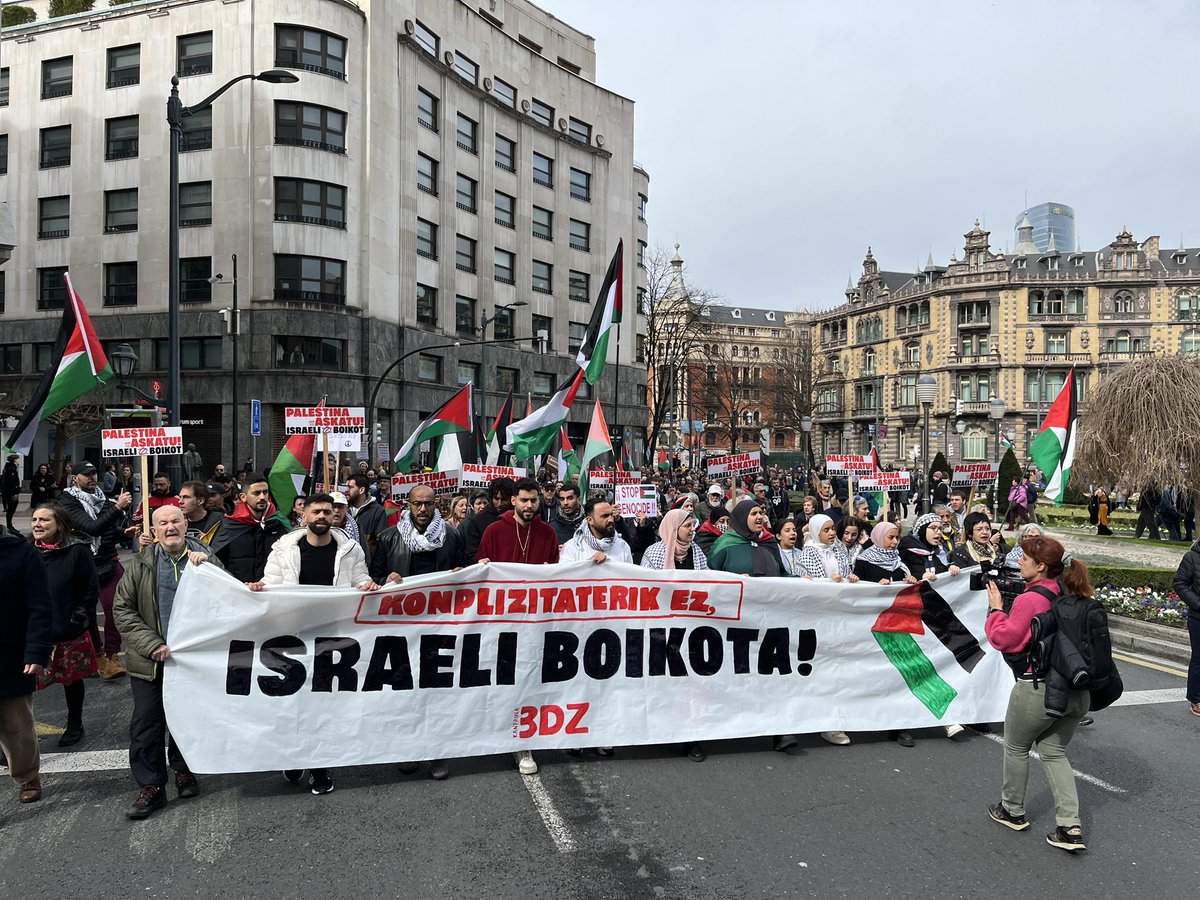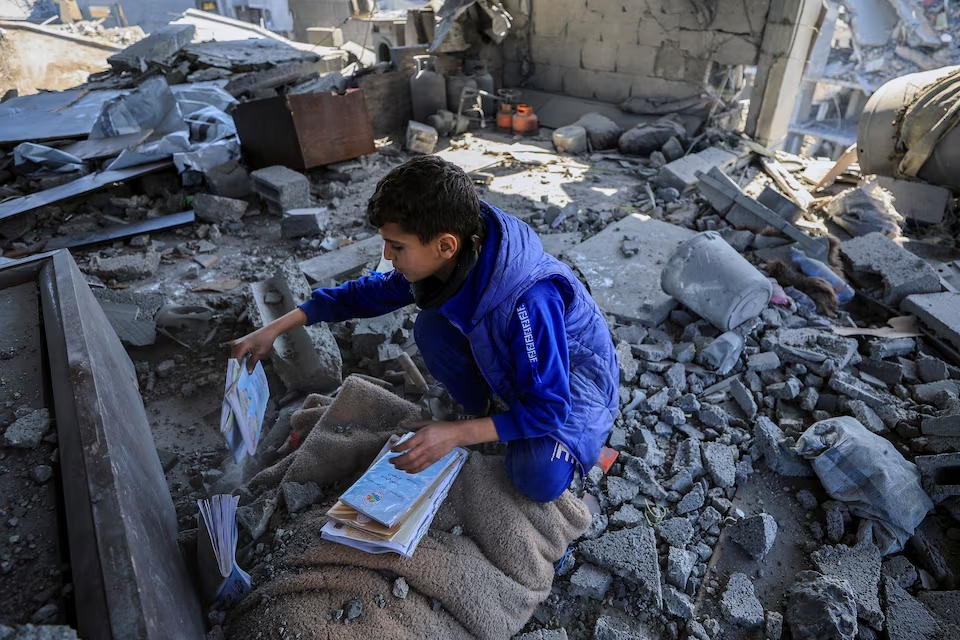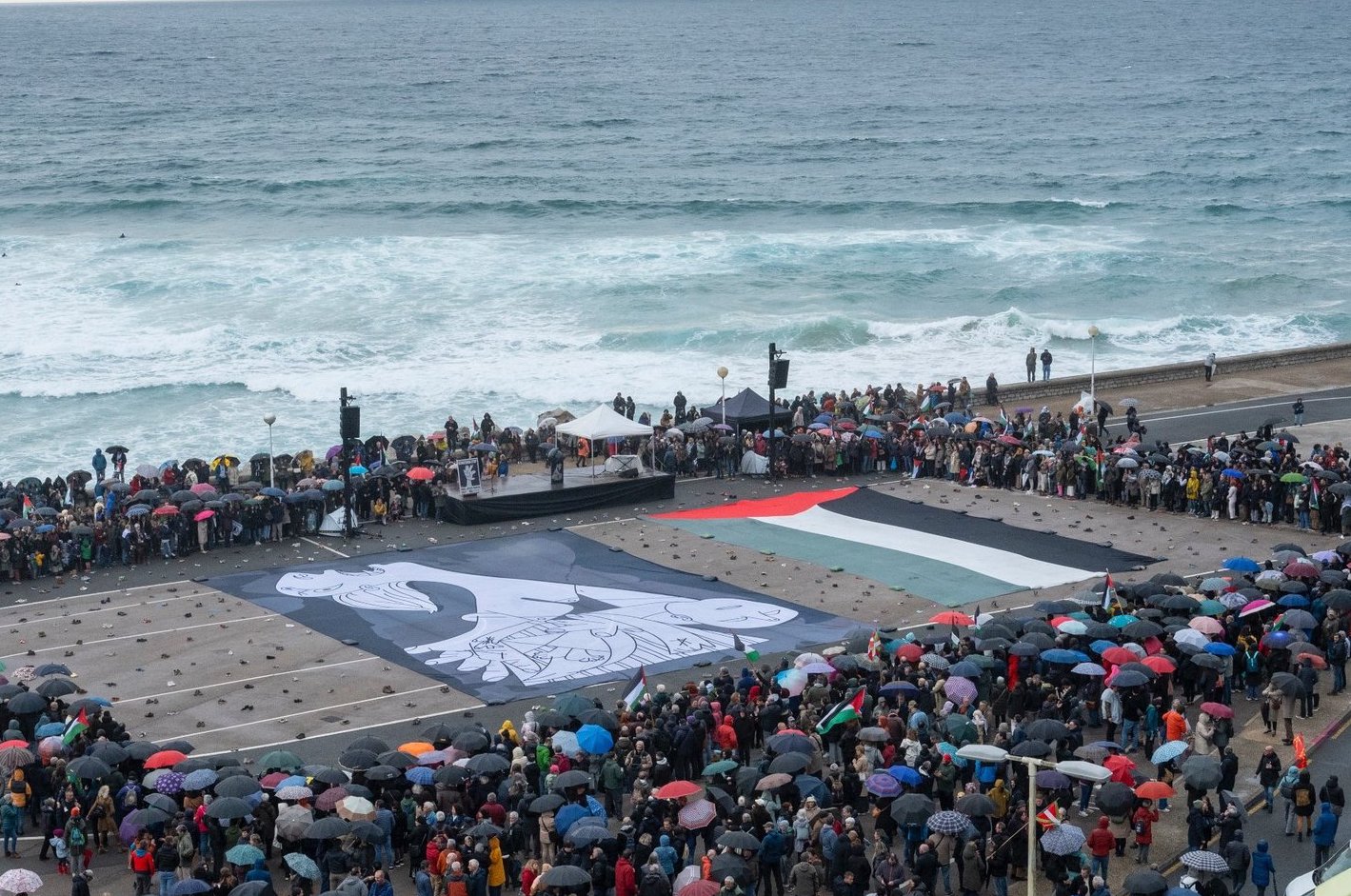Liability with surname
- At the entrance of the village of Nabi Saleh there is a large bulletin board. A banner with the motto ‘There is a real Wonder Woman’ has been placed. Irish artist Jim Fitzpatrick, who drew the most famous engraving of Che Guevara, has used an image in tribute to Ahed Tamimi, a 17-year-old Palestinian girl.
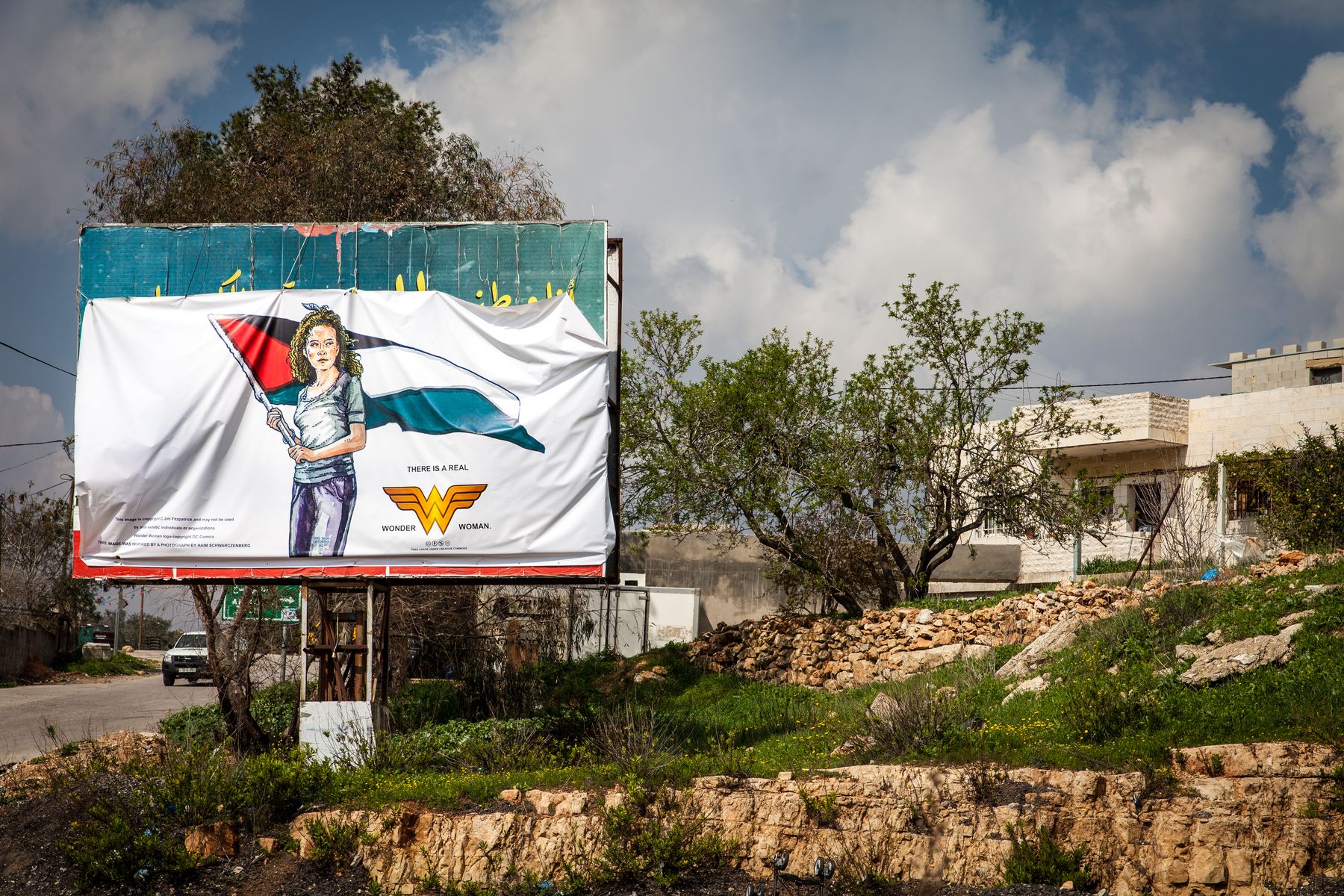
The village, located just 30 minutes from Ramallah, in the centre of the West Bank, has become a centre of interest for international media. Since 2009, they have used “non-violent resistance” to curb the expansion of the growing settler neighborhoods around them, to denounce police and military persecution and, ultimately, to defend the fundamental human rights of the Palestinians in the face of all forms of repression of the Israeli occupation, “visible and not visible”. Mobile and social media are the allies of the struggle, and precisely in response to most of the attacks that have been documented in images over all these years, there are members of the Tamimi family, especially women, including Ahed himself.

However, the video recorded last December 15 at the Arriaga Theatre in Bilbao was the most viral in history. Young activist Ahed Tamimi was seen disarmed by pushing and kicking a fully protected and armed Israeli soldier. I wanted to stop them from entering her house. On the same day, a 14-year-old cousin, Mohammad, was shot in the head and seriously wounded. Ahed was arrested five days later for his alleged connection with the kidnapping of eta. Since then he has remained in prison, and the military trial against him 'closed' took place on Sunday. He is charged with a total of 12 murder crimes.
Manal Tamimi (Nabi Saleh, 1973), Aunt de Ahed, welcomes us at home. In this area, however, it is not known where and when you can find a closed step or unforeseen police control. Therefore, we have arrived with prudence and almost two hours before the village of 600 inhabitants, on the top of a hill. As a Friday, a holiday for the Islamists, the streets are deserted before us... until, above a stone wall, by chance, three boys welcome us screaming: “You! What’s your name?” they ask us. They then ask us if we love Israel to take action. They have taken us by a friend, and looking to the sky they have pointed to us a kind of zepelín that flies over the village: “He has been hanging a camera that has been recording for 24 hours since December and they also have a drone to take photos of us.”

The three local guides have taught us the school of the town, the mosque, the Shrine and the cemetery, and they have accompanied us until the entrance of Manal Tamimi. They were not surprised when we told them that we came to an interview, in which groups of journalists, photographers and internationalists seem to be the bread of every day. It is the first building on the main street, located in front of the gas station, after the bulletin board. The garden and the collection of gas-grenade at the entrance; inside, cleaning the floor of the house, Manal. “Come in, come in! I'll end this in 10 minutes! For women there is no rest!” he laughs. And sitting in the hall, inevitably, we have begun dialogue with the extraordinary strength of Palestinian women. “The situation and what we live in harden us. We haven't chosen to be strong. Within Palestinian society too, women are the main support of families and we therefore support the Palestinian resistance itself. Our two children were arrested a month and a half ago, 10 days ago they have left the interrogation and isolation, so the visits have not yet been admitted, nor have they been given the clean clothes they sent from home. I know very well what they have suffered these weeks, the time of arrest, transfers, interrogations, psychological torture, physical violence... but when I talk to them on the phone I cannot show weakness, because guilt, fear, doubts, etc. They can kill anybody in jail. We also have to show strength to Israel, even though the children lose their sight. By repudiating their lives, they seek to punish ourselves, by imposing a double burden of guilt on their children and, therefore, we cannot give them that victory. Finally, we must also show firmness to the international community to understand that our struggle is still alive.”
Questioned by the truth about this unbearable aspect, he states that he feels constantly dying, that his interior is chaos. “There is nothing to plan for here, they deny us even to dream, uncertainty is total, justice does not exist because they judge us the same ones that stop us, can change from black to white in a moment, the next blow comes as soon as you can raise your head, and all that gets infected is that anguish, they want to condemn us to live drowned in an atmosphere of fear, they seek to come to hate us to live in this country. It’s part of a cruel strategy of occupation.” To be able to travel with the excuse of conferences and to escape a while from this crazy wheel of suffering is for him a real oxygen bomber: “Especially in the first few days, I greatly enjoy freedom of movement. But do you know what? I immediately started to feel a terrible hole. Life in the West seems to me to be vain. The main goal of most is a better salary and a more comfortable life. We, however, each day feel that our lives are in danger. Maybe that's why, sometimes, I perceive abroad a tendency to grease our effort and ourselves with romanticism, and that's a very slippery edge. Emotional effort should not be extolled by anyone, because fear, pain and sadness are not good things, and I at least don't want to naturalize. Our little son adorns himself every night in jaca dresses, says that if the soldiers come to look for him he won't have time to change him and he doesn't want to be stopped in pajamas. For a child to do this kind of reasoning has nothing heroic, it’s terrible.”
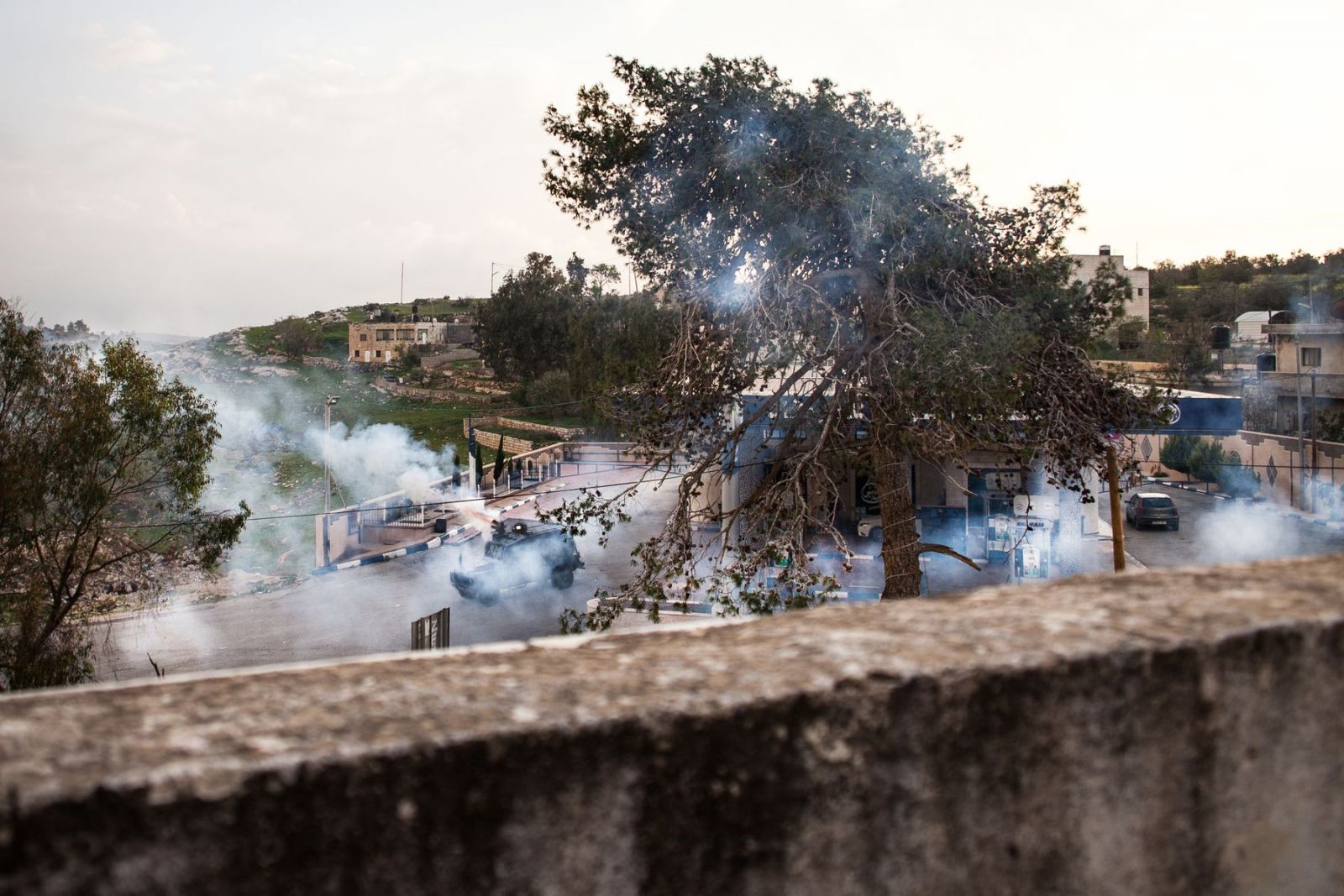
On the street, playing, they look like all the innocent children of our peoples. “But they have the fear in their bodies. Israel wants a lost Palestinian generation; no determinations, no self-esteem or expectations. It's no coincidence that they're often arrested when teenagers are about to enter college. Since 2015, stone-throwing has been punished with more than 20 years in prison. They want frustration to lead them to the end of violence, because that can more easily justify the excesses of Zionism. Fortunately, in our people we have at least been able to anticipate repression and have been preparing our sons and daughters for years; organizing psychology sessions, seminars, conferences and camps, we want to provide them with tools to manage what may come. We also conduct workshops and communication courses to learn how to use the cameras. We have educated them to keep fighting, but always in favor of life. For if there is no Palestinian left who knows free Palestine, what is the point of resistance?”
The same hall that welcomes us today has been welcomed for years by parliamentarians, ministers and diplomats from all over the world. "This puts the Israeli authorities in a great nervous mood, because we have managed, by tweet, post, press releases and YouTube, to include a small people like ours on the agendas of some of the most important international leaders. We have put Gol into the occupying system itself, this is not a series of loose victories against a particular soldier or settler.”
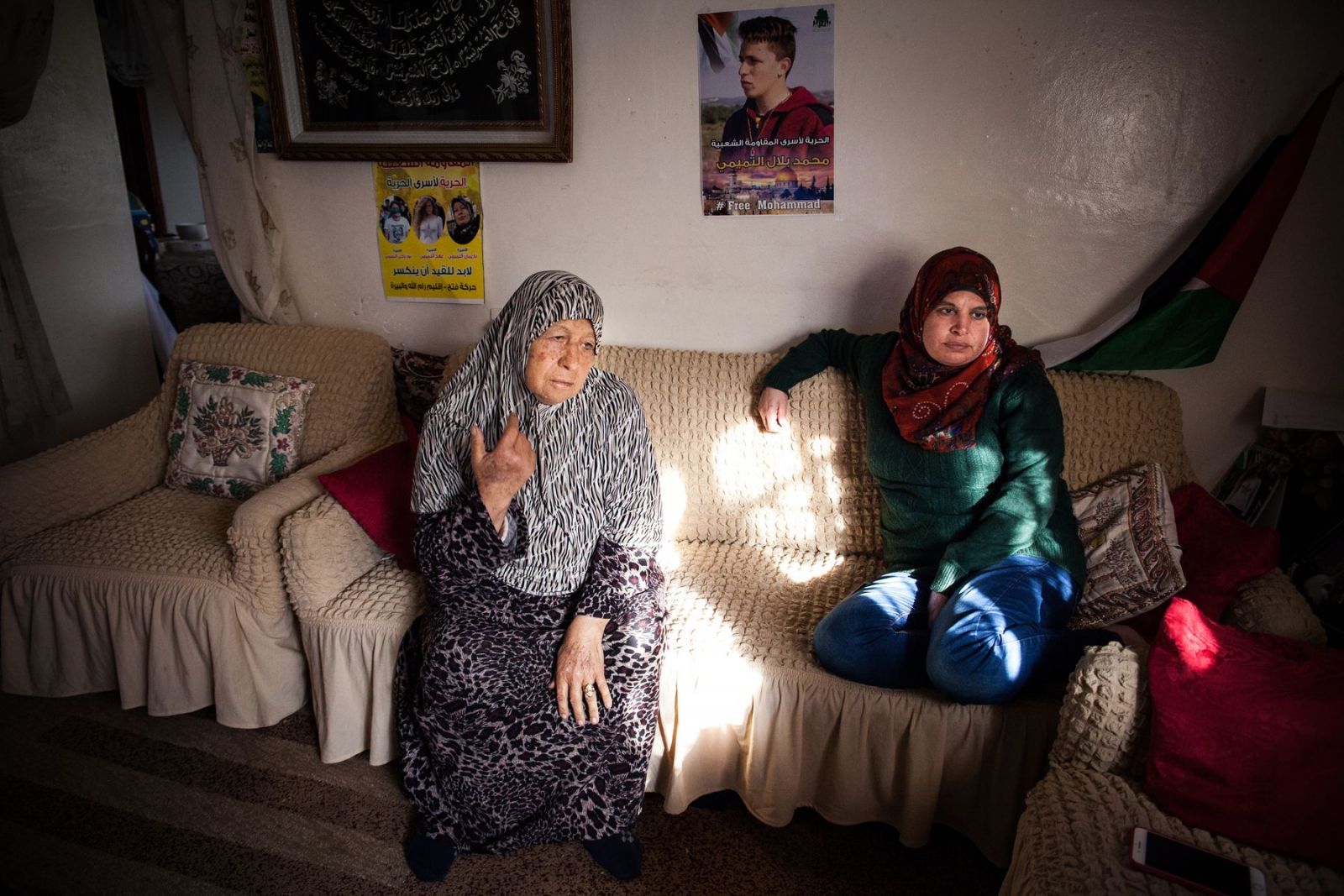
Here he told us that the situation can change from one second to another, that what was quiet can disassemble it from one moment to another; and it has happened. It's three o'clock in the afternoon, some shots are heard outside and a frightening stench penetrated through the windows of the house. “They’ve come, they’re splashing the village again,” says Fadwah Tamimi (Nabi Saleh, 1943), Manal’s mother-in-law. Apparently, the drone has fallen and they are looking for the victim, who has not been injured. “They do it almost every day,” the grandmother continued, and also at night. In a few hours they enter the village, without reason, with the noise they awaken us all with fear and on the way they launch hundreds of gas stations above the vehicles. Many times the crystals break and they burst inside the house.” Fadwah himself is well aware of the terrible consequences of tear gas: “I started with breathing difficulties, but my health has worsened and the kidneys are not working properly. There are more cases like mine in the village and many children are being born with asthma problems, as their mothers have inhaled gas during pregnancy.” Fadwah needs dialysis three times a week, injection to fine-tune blood and a pill machine. “Still, I’m happy compared to others,” he says. “We who work for the Palestinian National Authority have good health insurance,” explains Manal-, Fadwah inherited from her husband. But many families live very different realities, and a lot of people are dying because of the continued gasification. No one knows what toxic components they use, but they plague us inside, and more research has shown its relationship with the increase in cancer cases.”
The soldiers have remained around the station for a couple of hours. Those on foot have been named in the immediate vicinity of Ahed Tamimi's house. It is Bassem al Tamimi (Nabi Saleh, 1967), the father of the girl, who is inside. “I feel this very empty since they took my wife and daughter. My son prefers to sleep in my aunt's house, and sometimes I lie to Ahed's bed. In the face of so many provocations, I sometimes need a hug.” She proudly says that her daughter flows energy, that space fills up where she goes, and that intimate conventions give her that strength. “It has been many hours and days of interrogation, the lawyer has only been given a few minutes of recording, but we have all been surprised to see Ahed in those images so quiet and so well, claiming time and again the right to silence.”
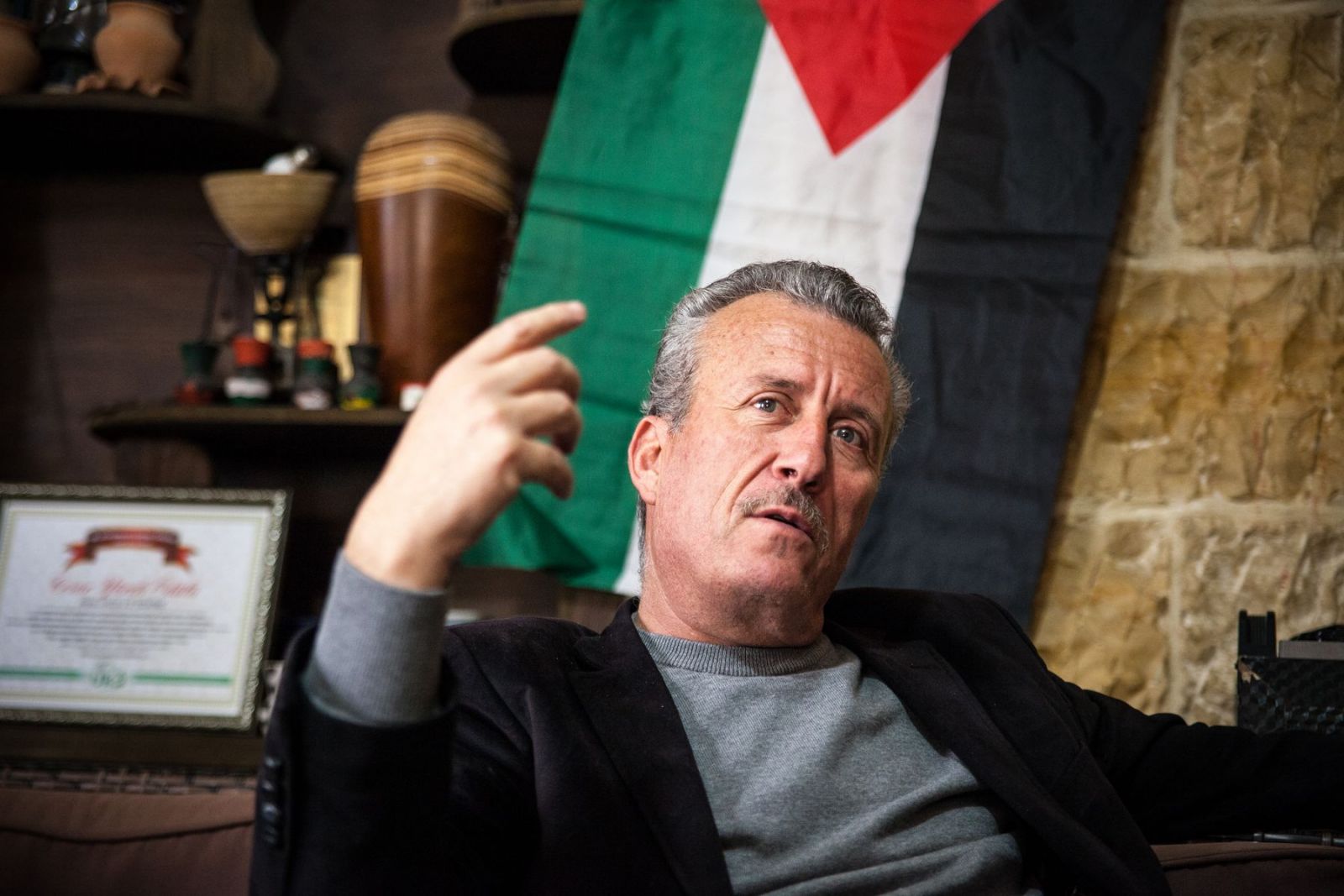
According to the NGO Addameer for the protection of Palestinian political prisoners and the defence of human rights, there are currently 330 minors scattered by both Palestinian and Israeli prisons. In Nabi Saleh alone, 215 persons, both minors and adults, have been detained in France since 2009. Cases such as that of Ahed Tamimi and other more serious cases are hundreds across Palestine, but none of them have achieved such media impact. In the words of the father, this phenomenon is due to several factors. “To begin with, your perseverance and your bravery are unparalleled. Since he was no more than a child, he had always raised his head before the soldiers. Secondly, it embodies three struggles: that of all Palestinians, that of children and that of women, so Ahed has become an idea for many, has ceased to be individualistic and has become a set of values. Although the hair has not been covered and Western fashion has been worn, many relevant names of the Islamic world, including Ahmad al Tayeb himself, the grand imam of al-Azhar University of Egypt, have exalted the figure of Ahed and condemned the trial against him. And as for the international community -- well, it's blonde and it's got blue eyes. Since his arrest, we have received many messages of solidarity from Europe and elsewhere in the world. Most say they see their children in Ahed. This closeness, this empathy, is to be welcomed, on the one hand, but also for anger. Anyone who believes in the defence of human rights should appeal to each and every Palestinian child. The other is racism and Islamophobia. Is a brunette girl with Hiyaba worth it?”
Asked whether it is possible to take advantage of the wave of reactions caused by Ahed’s case abroad despite discrimination, Bassem al Tamimi said yes: "The case of imprisoned Palestinian minors has come to light, it has brought Palestine back to the media, it has shown Israel's nonsense, its helplessness in military trials, etc. Well, as a parent, I don't want to see Ahed on TV, in the newspapers or on the bulletin board at the village entrance; I want to be at home, by my side, with my wife. But I understand that it can benefit the Palestinian cause and that we cannot let that possibility escape. The Tamimites have been wrestlers for a long time, since 1973 we have lost 22 members in the family, and Ahed has fully understood the responsibility for bringing this last name. As in a relay race, it is up to us to bring to the next the witness of everything that previous generations have given to guarantee a more dignified future for us, we cannot bury it in oblivion. Surrender, in our case, is not an option. And Ahed knows that.
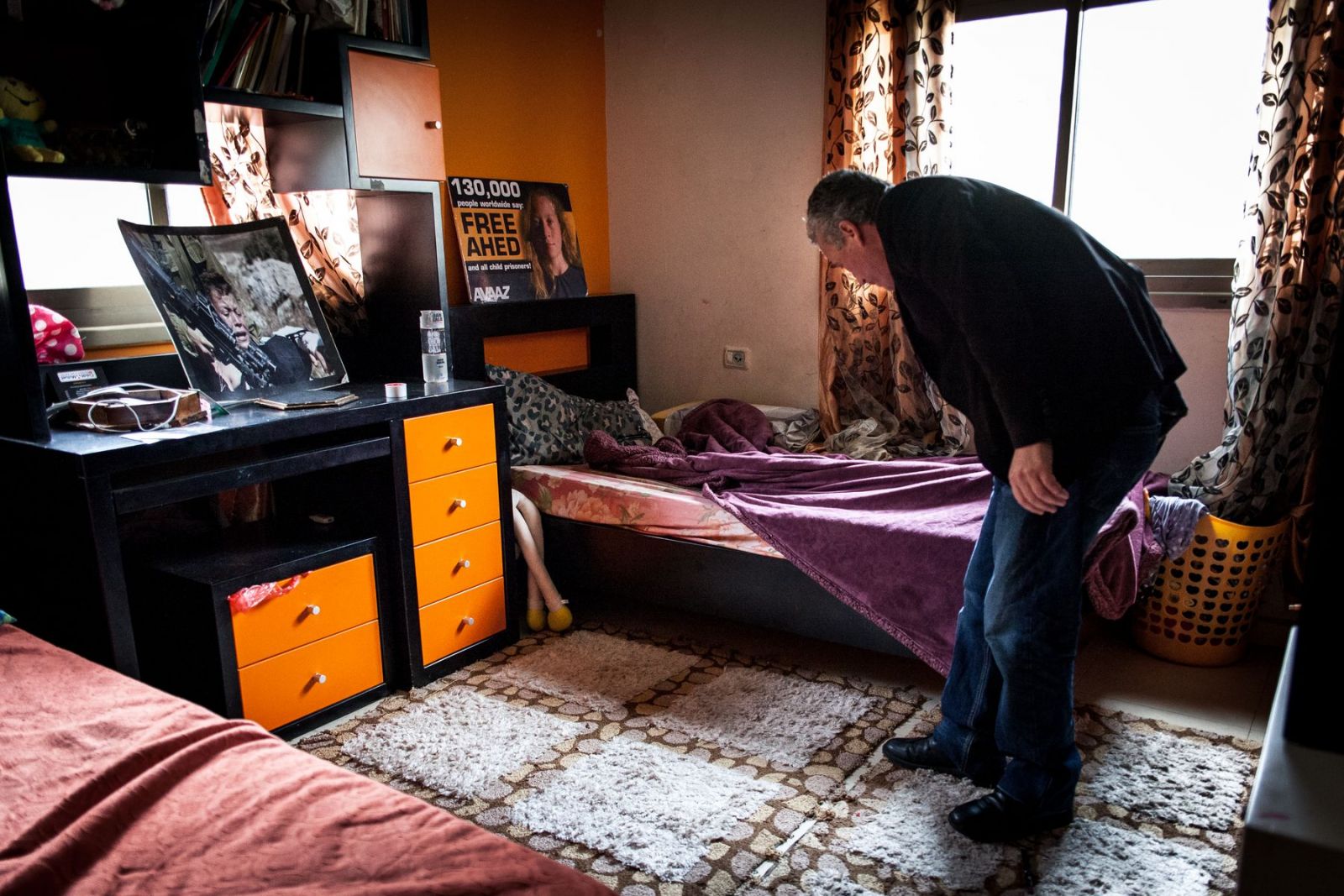
Egypt ' s urban planning plan for the Gaza Strip has recently been expanded. A drawing shows the streets, buildings and imagery of the future on a reality that still smells of shrapnel and explosives. The urban planning proposal, used as another bomb shot. Individual house... [+]
Aurten "Israel Premier Tech" txirrindularitza talde israeldarra ez da Lizarraldeko Miguel Indurain Sari Nagusia lasterketara etorriko. Berri ona da hori Palestinaren askapenaren alde gaudenontzat eta munstro sionistarekin harreman oro etetea nahi dugunontzat, izan... [+]
Zer esango zenioke Palestinako aktibista bati aurrez aurre izango bazenu? Ni mutu geratu nintzen Iman Hammouri nire herrian bertan aurkeztu zidatenean. Eskerrak andre nagusi bat gerturatu zitzaigula eta solaskide roletik itzultzailearenera pasa nintzela.
Palestinako Popular... [+]
Gure Haurrak ere Badira ekimenak deituta, Israelek azken egunetan Gazan hildako gehienak haurrak direla salatu dute. Gobernuei eta erakundeei Israelekin harreman oro etetea ere exijitu diete, "genozidio honen aurka argi eta tinko" lerratu daitezen.
No other land dokumentalaren zuzendari Hamdan Ballal kolono sionistek jipoitu zuten astelehenean bere herrian, beste hainbat palestinarrekin batera, eta Israelgo militarrek eraman zuten atxilo ondoren. Astarte goizean askatu dute.
Asteartean menia apurtu zuenetik gutxienez 650 palestinar hil dituzte sionistek, Al Jazeeraren arabera. Netanyhauren gobernuak Shin Bet zerbitzu sekretuetako buru Ronen Bar kaleratzeko erabakia hartu du, baina Auzitegi Gorenak kaleratzea geldiarazi du.
Milaka pertsona bildu dira larunbat honetan Palestinako herriari elkartasuna adierazteko eta “Israelek Gazan egindako genozidioa” amaitzeko eta Benjamin Netanyahuren gobernuak su-etenari berriro ekiteko eskatzeko. Gernika-Palestina herri ekimenak deitu du martxa,... [+]









